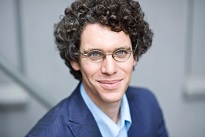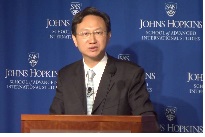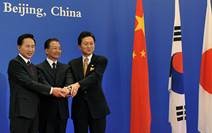
Split Enforcement:How Central Local Relations Affect Pollution Law Enforcement in China
Thursday, November 12, 2015
4:00 PM - 5:30 PM
UCLA Law School, Room 2326
This talk analyzes how central-local relations shape environmental enforcement in China. It does so by seeking to understand how existing decentralized structures as well as recent trends towards centralization relate to temporal and geographical variation in enforcement since 1999-2011. The paper finds that enforcement over time has become stricter and more frequent, however without yet matching the development of pollution and industry. Moreover it finds a situation of “split enforcement” with richer and more urbanized areas having much stronger and more frequent enforcement than inland areas. Split enforcement points on the one hand to the influence of centralizing influences that may have spurred stronger enforcement, and may also have allowed for an uneven development.
Benjamin van Rooij is the John S. and Marilyn Long Professor of U.S.-China Business and Law and director of the UC Irvine Long U.S.-China Institute. His research focuses on implementation of law in comparative perspective. Since 2000 he has studied the implementability of legislation, regulatory law enforcement and compliance, and rights invocation and legal empowerment. A central theme in his work is how implementation of law can be improved in the context of emerging markets where weak enforcement and widespread violations of law create a vicious circle undermining compliance.

Taiwan’s 2016 Elections and Cross-Strait Relations
Monday, November 16, 2015
4:00 PM - 5:30 PM
Bunche Hall 10383
Taiwan will hold general elections to elect the 14th President and 113 members of the 9th Legislative Yuan on 16 January, 2016. Currently, there are three presidential candidates:Hung Hsiu-chu(KMT), Tsai Ing-wen(DPP), and James Soong(PFP). The 2016 elections will significantly change Taiwan’s political landscape and will have consequent impact on relations between Taiwan and China. In his speech, Prof. Tung will provide his observations on the following questions:Who is most likely to win Taiwan’s 2016 presidential election? Why is Tsai Ing-wen popular as well as Hung Hsiu-chu and James Soong unpopular in Taiwan’s 2016 presidential election? Which party or party alliance might win the majority seats of the Legislative Yuan? What is President Ma’s legacy of cross-Strait relations?
Chen-yuan Tung is currently a visiting scholar of the University of California, Berkeley, distinguished professor of the Graduate Institute of Development Studies and director of the Center for Prediction Markets, National Chengchi University(Taiwan), and president of Association for Cross-Strait Policy(Taiwan). He received his Ph.D. degree majoring in international affairs from the School of Advanced International Studies(SAIS), Johns Hopkins University. From September 2006 to May 2008, he was vice chairman of the Mainland tAffairs Council, Executive Yuan, Republic of China(Taiwan). His expertise focuses on international political economy, Chinese economic development, and prediction markets.

Fraught Security in Asia - 70 years after WWII
Tuesday, November 17, 2015
12:15 PM
UCLA Law School, Room 1420
Gene Park is an associate professor of Political Science at Loyola Marymount University. He specializes in comparative politics, international relations, and political economy. Park's research focuses broadly on understanding the reciprocal relationship between politics and markets. Current projects include a comparative study of the politics of budget deficits, a study of Japanese monetary policy, and a survey study on the determinants of tax attitudes.
Susan L. Shirk is Ho Miu Lam Endowed Chair in China and Pacific Relations, Director of the University of California Institute on Global Conflict and Cooperation(IGCC)and Professor at UCSD. She first traveled to China in 1971 and has been doing research there ever since. From 1997-2000, Shirk served as Deputy Assistant Secretary of State in the Bureau of East Asia and Pacific Affairs, with responsibility for China, Taiwan, Hong Kong and Mongolia. In 1993, she founded, and continues to lead, the Northeast Asia Cooperation Dialogue(NEACD).
Philip Yun is currently Executive Director and COO of Ploughshares Fund. Prior to joining Ploughshares Fund, he was a vice president at The Asia Foundation(2005-2011), a Pantech Scholar in Korean Studies at the Shorenstein Asia Pacific Research Center at Stanford University(2004-2005)and a vice president at the private equity firm of H&Q Asia Pacific(2001-2004). Mr. Yun was a presidential appointee at the U.S. Department of State(1994-2001), serving as Senior Advisor to the Assistant Secretary of State for East Asian and Pacific Affairs.
UCLA Center for Chinese Studies
11381 Bunche Hall
Los Angeles, Ca 90095
china@international.ucla.edu

















